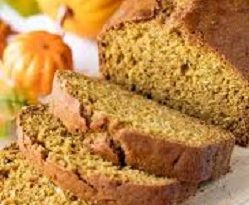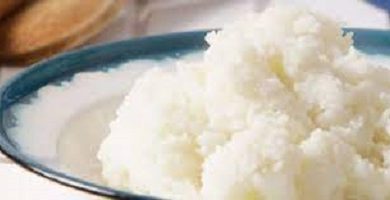Low-Carb Dinner Ideas for Family
Low-Carb Dinner Ideas for Family

· Amazing Low Carb Dinner Ideas That Will Make Your Nights Easy
Carbohydrates, together with fat and protein, are an important source of energy and one of the three main macronutrients in the diet.
Carbohydrates not only feed your brain and cells throughout your body, but they also affect digestive health, hunger, cholesterol levels, and other factors.
Nonetheless, many people prefer to reduce their carbohydrate intake. Low carb diets have been related to advantages such as enhanced weight loss and better blood sugar control.
Certain foods heavy in carbs and sugar, such as sweetened beverages, cake, and candy, must be avoided on a low-carb diet.
However, determining which staple items to eliminate isn’t always simple. In reality, while certain high-carb foods are really healthy, they are nevertheless unsuitable for a low-carb diet.
Your total daily carbohydrate goal dictates whether you need to limit some of these items or avoid them entirely.
Depending on your goals, circumstances, and tastes, low-carb diets often comprise 20–130 grams of carbs per day.
Nigerian Low-Carb Dinner Ideas
Some folks think that Nigerian food is made of only carbohydrates but that’s incorrect.
Nigerian Low-Carb Dinner Ideas for weight loss
We have quite a lot of meals that are low in carbs which you can consume and if you add that with portion control, can help you to lose weight or to maintain a healthy body mass.
A low carb diet particularly the Ketogenic diet is the cutting-edge trend in the Nigerian weight loss community right now.
For detailed information on a ketogenic diet, please read:
- Keto Diet in Nigeria: Keto Compliant Food Lists + Keto diet meal plan
- the Keto Diet Meal Plan: Your Complete 7-day Low Carb Menu
- Keto Snacks: Best Keto Friendly Snacks Diet on The Go
Table of Contents
Low-Carb Dinner Ideas: Overview of Low Carbohydrate Foods
There is no consensus on how much carbohydrate low-carbohydrate diets must contain, which has hindered research.
According to one definition from the American Academy of Family Physicians, low-carbohydrate diets contain fewer than 20% of their calories from carbohydrates.
Apart from Low-Carb Dinner Ideas for weight loss, when low-carbohydrate diets yield outcomes similar to other diets, there is no good evidence that low-carbohydrate dieting imparts any unique health benefits.
Weight loss is mostly driven by calorie restriction and adherence.
The ketogenic diet, an extreme form of a low-carbohydrate diet, was first designed as a medical diet for treating epilepsy.
Through celebrity sponsorship, it became a popular fad diet for weight loss, however, there is no evidence of any unique advantage for this purpose, and the diet carries a risk of bad consequences, with the British Dietetic Association labeling it one of the “top five worst celeb diets to avoid” in 2018.
Low-carb dinner ideas vegetarian
There are many reasons why you might be searching for healthy low-carb vegetarian recipes.
You may want to prepare low-carb vegetarian meals so as to reduce your intake of unhealthy processed carbs, such as white bread and pasta.
Lessening the amount of these carbs in your diet could help prevent Type 2 diabetes and heart disease.
Though, there are quite a number of healthy carbs, namely unprocessed whole grain carbs, which provide your body with important fuel.
Low carb recipes: simple low-calories dinners Recipes on a budget
Chicken Wings for a Weeknight for Picky Eaters
These cost-effective wings require very little preparation and are sure to please.
Ingredients
- 1 pound (450 grams) of raw, unbreaded chicken wings
- your favorite seasoning blend or rub
Instructions
- Rub chicken wings with your preferred spice blend.
- Bake for about 40 minutes, or until each wing is fully cooked, at 360–395°F (180–200°C).
- Broil the wings until browned and crunchy, flipping as required until finished. Keep a close eye on them so they don’t burn.
- Toss with ranch dressing and serve with celery and carrot sticks.
- Unbreaded chicken wings are carb-free. However, certain rubs or spice combinations may contain carbohydrates.
Tangy Chicken Salad
I usually have a preference for a salad loaded with veggies and when I need something a little sweeter, this salad is perfect.
It’s a fast and filling meal with little to no effort.
Nutritional facts per serving: 286 calories (1197 kilojoules), 20.6g carb, 27.1g protein, 10.5g fat, 2.6g fiber, 630mg sodium
Low Calorie and Low Carb Dinner Ideas Instant Pot Recipes
- Chicken nuggets with a low carbohydrate count
- Fajitas
- 3-Ingredient Creamy Rotisserie Chicken Salad with Evidence-Based Nutrition
- Meatza
- Taco bowls made with cauliflower rice
- Simple Zucchini Spaghetti
Nigerian Low-Carb Dinner Ideas for Family
Find below, some Nigerian Low-Carb Dinner Ideas delicacies I believe can be turned into keto-friendly meals with a little bit of modification.
I will also be adding the requested recipe twists below.
But for information, please do your own research about this diet so you will know what to eat and what not to eat.
Low-Carb Dinner Ideas: Nigerian Low Carb Soups
- Afang Soup (Okazi Soup)
- Abak Atama Soup
- Banga Soup (Ofe Akwu)
- Catfish Pepper Soup (Point & Kill)
- Edikang Ikong Soup (Vegetable Soup)
- Efo Riro
- Ofe Ugba
- The Best Ogbono Soup Recipe
- Ogbono Soup with Okra
- Oiless NonSlimy Okra Soup
- Vegetable Soup (Make-believe Edikang Ikong)
- Nigerian Okra Soup
- Seafood Okra Soup
Low-Carb Dinner Ideas: Nigerian Low Carb Fufu Meals
- Cabbage Fufu
- Carrot Fufu
- Spinach Fufu
- Cauliflower Fufu
- Eggplant (Aubergine) Fufu
Low-Carb Dinner Ideas: The 5 Most Common Low Carb Errors (And How to Avoid Them)
While low-carb diets are popular, they are also prone to errors.
There are numerous stumbling barriers that can result in negative repercussions and unsatisfactory results.
Simply reducing carbs isn’t enough to reap all of the metabolic benefits of low-carb diets.
Low-Carb Dinner Ideas: Here are the top five low-carb blunders and how to prevent them.
Consuming an excessive amount of carbohydrates
While there is no clear definition of a low-carb diet, anything less than 100–150 grams per day is considered low carb.
This is clearly less than the number of carbs found in the average Western diet.
You can have fantastic outcomes within this carb range if you eat complete, unadulterated foods.
However, if you wish to enter ketosis, which is required for a ketogenic diet, this level of intake may be too high.
To achieve ketosis, most people will need to consume less than 50 grams of fat per day.
Keep in mind that this limits your carbohydrate options to veggies and modest amounts of berries.
Subtract fiber, sugar alcohols, and other nondigestible carbohydrates from the total quantity to get net carbs. On a ketogenic diet, these are the carbs to avoid.
Going less than 50 grams of carbs per day may be necessary to enter ketosis and gain the full metabolic benefits of low-calorie diets.
Excessive protein consumption
Protein is a very important macronutrient that most individuals get enough of.
It can promote fat burning and improve sensations of fullness more than other macronutrients.
In general, increasing protein consumption should result in weight loss and improved body composition.
Low carb dieters who eat a lot of lean animal meals, on the other hand, may end up eating too much protein.
When the body does not have enough carbs, amino acids from proteins are converted into glucose through a process known as gluconeogenesis.
This can be an issue on very low-carb ketogenic diets, preventing your body from entering full ketosis.
Some scientists believe that a well-formulated low-carb diet should be heavy in fat and moderate in protein.
Aim for 0.7–0.9 grams of protein per pound (1.5–2.0 grams per kilogram) of body weight.
Excessive protein consumption on a low-carb diet can keep you from reaching ketosis.
Fear of Consuming Fat
The majority of people acquire the majority of their calories from dietary carbohydrates, particularly sweets and grains.
When you eliminate this source of energy from your diet, you must replace it with something else.
However, some people feel that eliminating fat from a low-carb diet will make it healthier. This is a huge blunder.
If you don’t eat carbs, you must compensate by eating fat. Failure to do so may result in hunger and malnutrition.
There’s no scientific need to be afraid of fat, as long as you avoid trans fats and instead choose good fats like monounsaturated and omega-3 fats.
For certain people on a low carb or ketogenic diet, a fat intake of roughly 70% of total calories may be a healthy option.
To achieve this level of fat, you must consume fatty cuts of meat and generously supplement your diet with good fats.
A low carbohydrate diet must be high in fat. You won’t be able to sustain yourself if you don’t obtain adequate energy and nourishment.
Not replacing sodium
One of the primary factors underlying low-calorie diets is a decrease in insulin levels.
Insulin performs numerous roles in your body, including instructing fat cells to store fat and your kidneys to retain salt.
When you follow a low-carb diet, your insulin levels drop and your body begins to eliminate excess sodium and water with it.
This is why people commonly get rid of extra bloating after just a few days of eating low carb.
However, sodium is an important electrolyte. When your kidneys excrete too much salt, low sodium levels might become a concern.
This is one of the reasons why people experience low carbohydrate diet side effects such as lightheadedness, weariness, headaches, leg cramps, and even constipation.
The easiest approach to avoid this problem is to increase your sodium intake. You can achieve this by seasoning your foods with salt, but if that isn’t enough, consider drinking a cup of broth every day.
At the same time, keep in mind that the Food and Drug Administration has established a Daily Value for sodium of no more than 2,300 mg per day.
Consuming more than this quantity is hazardous to your health, especially as a risk factor for high blood pressure.
Consuming too little salt is generally not a problem in most Western diets.
Furthermore, after adapting to a low-carb diet, the kidneys are quite good at managing electrolyte levels and preserving chemical balance in the body.
Low carbohydrate diets lower insulin levels, causing your kidneys to eliminate extra salt. This may result in a slight sodium deficit.
Giving up too soon
Your body is built to preferentially burn carbohydrates. As a result, if carbs are always available, your body will use them for energy.
If you substantially reduce your carbohydrate intake, your body will need to switch to burning fat, which can come from either your food or your body’s storage.
It may take a few days for your body to adjust to burning mostly fat rather than carbs, during which time you may feel a little under the weather.
This is known as the “keto flu,” and it affects the majority of people who follow ultra-low-carb diets.
If you are feeling ill for a few days, you may be tempted to abandon your diet.
However, keep in mind that your body may need 3–4 days to acclimatize to your new routine, and full adaption may take several weeks.
Use your best judgment to determine whether this diet is working for you and whether you want to stick with it.
Before embarking on any new diet, it’s a good idea to see a dietician or another healthcare practitioner.
It may take a few days to overcome the unpleasant symptoms of a low-carb diet, and several weeks for your body to fully adapt.
It is critical to be patient and not give up on your diet too soon.
Low carbohydrate diets may offer a potential solution to health problems such as obesity and type 2 diabetes.
However, simply reducing carbs isn’t enough to help you lose weight or improve your health.
Small healthy lifestyle adjustments over time are the most effective strategy to accomplish long-term, sustainable weight loss.
Ketogenic diets are frequently not long-term maintainable, and dieters frequently regain weight when they resume carbohydrate consumption.
Eat a well-balanced diet and obtain adequate exercise for optimal well-being.
What are the health advantages of a low carbohydrate diet? Low-Carb Dinner Ideas
A low-carb and ketogenic diet has numerous advantages. Read our complete report on the health benefits of this diet.
The following are the advantages you will appreciate the most:
- Eating low carbs results in weight loss, which can be dramatic and quick.
- Eating low carbs eliminates those bothersome out-of-control cravings, stabilizes blood sugar, and hence reduces hunger.
- Studies have shown that replacing carbohydrate consumption with protein and healthy fats reduces overall calorie consumption naturally and without starving.
- Visceral fat reduction ~ Studies have indicated that a low-carb diet can help to reduce levels of visceral fat rather than superficial subcutaneous fat.
- Helps to stabilize blood sugar levels, which may help to prevent and control type 1 and type 2 diabetes.
Because low carb eating excludes insulin triggers (sugars and starches), it is the diet of choice for persons with prediabetes or those who have been diagnosed with diabetes.
- While much research into low carb eating as it relates to treating or preventing disease is inconclusive, a low carb diet does result in weight loss, which is especially essential in metabolic and insulin-related diseases such as type 2 diabetes and other metabolic syndrome conditions.
- May reduce the risk of heart disease, diabetes, cancer, and stroke.
- The ketogenic diet is used to treat several types of cancer and to reduce tumor growth.
- TBI, epilepsy, Parkinson’s disease, Alzheimer’s disease, and polycystic ovarian syndrome are all treated with the ketogenic diet.
- Many people report simply feeling better, including feeling less bloated and having more energy than when they followed a high-carb diet.
Frequently Asked Questions on Low-Carb Dinner Ideas
How would my body function if I eliminate carbohydrates from my diet? Aren’t carbs what give us energy?
Carbohydrates are a source of energy for the body, but they are not the sole ones.
Indeed, data suggests that our bodies are excellent adapters and that they perform better when they burn fat rather than carbs, a process known as ketosis.
Your body also has a virtually limitless supply of fat to burn as fuel, but only a limited quantity of glycogen created by carbs.
Many people are also unaware that gluconeogenesis is a natural process in the body that converts protein into glycogen body fuel.
So, limiting your carb consumption will not only provide you with plenty of body fuel, but it will also allow you to lose weight and convert your body into a fat-burning powerhouse.
According to what I’ve read, ketosis is incredibly harmful. Is this a true or a myth?
Ketoacidosis is frequently confused with ketosis. Ketosis is a fully safe, beneficial, and natural metabolic process, whereas ketoacidosis is a deadly condition that occurs in people with uncontrolled diabetes.
Many people are advised by doctors to follow a ketogenic diet in order to treat specific diseases. As such, in moderation, it is a totally safe diet.
However, eliminating all carbohydrates from your diet can be hazardous.
Are there any negative consequences to cutting out carbs?
Some people have digestive and gastro issues, however, this is a common side effect that usually goes away after around four weeks.
Consuming more high-fiber vegetables, such as leafy greens and broccoli, is beneficial, and magnesium supplements can help relieve constipation.
Aside from the keto flu, the keto rash, and poor breath, there have been a few other reported side effects of a ketogenic diet.
Will I ever be able to consume carbohydrates or sugar again?
To allow the body to properly enter ketosis when following the ketogenic diet, it is critical to be stringent in the elimination of carbs at first.
When you attain your goals, whether it’s losing weight or restoring your health, you can splurge on occasion, but then return to the diet.
You may find it beneficial to gradually incorporate some carbs back into your diet while measuring their effect on your weight, allowing you to attain and maintain your goal weight by determining your perfect carb balance.
Moderation is essential in any healthy eating regimen.
Furthermore, many people who maintain a low carb lifestyle for an extended period of time find that when they do eat sugar or sugary foods, they simply do not tolerate or enjoy them as much as they used to, either because the taste is so strong and overwhelming or because they simply feel better without it.
In conclusion
Low carbohydrate diets have been demonstrated to have a variety of health benefits, including weight loss and lower blood sugar levels.
However, sticking to a low-carb diet without some planning might be difficult.
This is where these simple recipes come in. They require few ingredients and take only a few minutes to prepare, making them ideal for individuals with hectic schedules.
Don’t be concerned about implementing all of these adjustments at once. Instead, make one small change at a time until it becomes a habit.
FAQs
What Nigerian foods are low in carbs? Low-Carb Dinner Ideas
Nigerian Low Carb Fufu Meals
- Cabbage Fufu.
- Carrot Fufu.
- Cauliflower Fufu.
- Eggplant (Aubergine) Fufu.
- Spinach Fufu.
What meals can I have on a low-carb diet? Low-Carb Food List — Low-Carb Dinner Ideas
- Meat: Beef, lamb, pork, chicken, and others; grass-fed is best.
- Fish: Salmon, trout, haddock, and many others; wild-caught fish is best.
- Eggs: Omega-3-enriched or pastured eggs are best.
- Vegetables: Spinach, broccoli, cauliflower, carrots, and many others.
What is the healthiest Nigerian food? Low-Carb Dinner Ideas
Waterleaf helps with blood circulation, boosts immunity, and supports weight loss.
- Edikang Ikong Soup.
- Egusi soup
- Unripe plantain porridge.
- Moin Moin for the culture.
- Ofada rice and beef sauce.
What meat can you eat on a low-carb diet? Low-Carb Dinner Ideas
Eggs and Meats
- Eggs (Almost Zero) Eggs are among the healthiest and most nutritious foods on the planet
- Beef (Zero) Beef is highly satiating and loaded with important nutrients like iron and vitamin B12
- Lamb (Zero)
- Chicken (Zero)
- Pork, Including Bacon (Usually Zero)
- Jerky (Usually Zero)
How can I get a flat stomach in Nigeria? Low-Carb Dinner Ideas
Flat Tummy Diets
- Protein-rich foods such as fish, eggs, chicken, and beans;
- Fiber-rich foods such as fruits, vegetables, and whole grains;
- Full-fat dairy;
- Nonstarchy vegetables like broccoli and peppers;
- Complex carbohydrates like oatmeal and sweet potatoes.
Is Cabbage low in carbs? Low-Carb Dinner Ideas
Nutritional Fact
One cup (89 grams) of chopped raw cabbage contains 5 grams of carbs, 3 of which are fiber (70).
It also provides 54% of the RDI for vitamin C and 85% of the RDI for vitamin K. Cabbage contains 2 grams of digestible carbs per serving.
It’s high in vitamins C and K and may reduce the risk of certain cancers.
Can I eat rice on a low-carb diet? Low-Carb Dinner Ideas
Most grain dishes including rice, wheat, and oats are high in carbs and need to be restricted or avoided on a low carb diet.
Does avocado have carbs? Low-Carb Dinner Ideas
One-third of a medium avocado contains 3 grams of fiber with only 4 grams of carbohydrate.
Unlike most other fruits, a serving of avocado contains zero grams of naturally occurring sugar and does not affect the glycemic response.
The carbohydrate found in avocado is 79% fiber.


